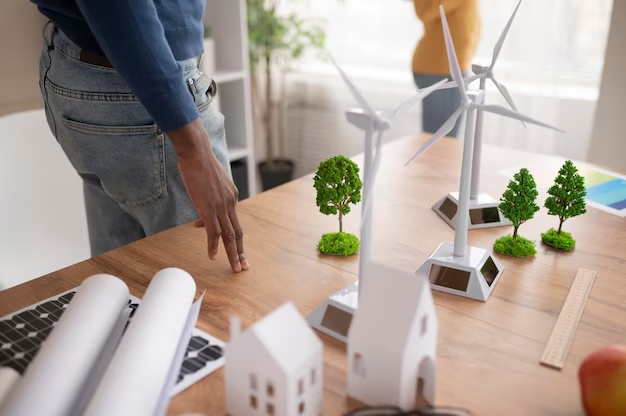Sustainable Structures: A Deep Dive into Eco-Friendly Architecture
- Natalie Akins
- Feb 17, 2024
- 4 min read
Updated: Jun 27, 2024

The concept of sustainable architecture has gained significant traction in recent years, offering an environmentally conscious approach to building and design. Sustainable structures are constructed with a mindful eye toward reducing their negative impact on the environment, conserving energy, and preserving natural resources.
By prioritizing sustainability in architecture, we can create built environments that promote well-being, preserve natural resources, and contribute positively to society and the economy. Keep reading as we take a deep dive into sustainable architecture from various angles.
Benefits of Sustainable Structures
Sustainable structures offer a multitude of advantages. They promote energy efficiency, reduce greenhouse gas emissions, and lower the overall carbon footprint of buildings. However, the adoption of sustainable architecture practices extends beyond environmental benefits, offering tangible societal and economic advantages as well:
Reduced Operational Costs: Sustainable structures often feature energy-efficient systems and designs, resulting in decreased utility bills for occupants.
Increased Property Value: Green buildings often command higher property values due to their reduced operating costs and improved comfort and health benefits.
Enhanced Occupant Productivity: Studies have shown that individuals working or residing in sustainable buildings experience reduced stress levels, improved air quality, and increased productivity.
Community Development: Sustainable structures can serve as catalysts for community development, attracting businesses and residents committed to sustainability and environmental responsibility.
All in all, the commitment to sustainable architecture is a must for not only improving the environmental impact of modern structures but also appealing to contemporary residents and businesses alike. Let's take a closer look at how modern architects are achieving these benefits in their structural design.
Energy Efficiency
Energy efficiency is a fundamental principle of sustainable architecture. By incorporating energy-efficient features into buildings, architects can significantly reduce energy consumption.
Building code insulation requirements play a key role in this regard, as they ensure that buildings are properly insulated to minimize heat loss and gain. Additional strategies, such as using efficient lighting fixtures and appliances, optimizing building orientation, and implementing passive solar design techniques, further enhance energy efficiency.
Waste Reduction
Sustainable structures prioritize waste reduction throughout their lifecycle, from construction to operation. Architects can minimize waste by opting for durable materials that require less frequent replacement and selecting building components that are easy to recycle or reuse. Additionally, they can incorporate on-site composting facilities, rainwater harvesting systems, and green roofs to reduce the environmental impact of waste disposal.
Also Read:
Durability
Durability is another critical aspect of sustainable architecture. Structures that are built to last require fewer resources and consume less energy for maintenance over their lifespan, reducing their environmental footprint. Using high-quality materials and employing construction techniques that enhance durability, such as waterproofing and proper detailing, can extend the lifespan of buildings and minimize the need for costly repairs and replacements. For concrete structures, choosing from the best concrete densifier options can significantly enhance durability by improving resistance to wear, abrasion, and chemicals.
Reductions in Land Usage
Sustainable architecture promotes efficient land use by emphasizing compact, mixed-use developments and vertical construction. By designing buildings that are closer to amenities and public transportation, architects can reduce urban sprawl and preserve natural habitats. Additionally, incorporating green spaces into building designs, such as rooftop gardens and courtyards, can provide valuable outdoor areas while also reducing the urban heat island effect.
Indoor Air Quality Enhancement
Indoor air quality is a significant concern in modern buildings, as pollutants from various sources can accumulate and harm occupants' health. Sustainable architecture addresses this issue by incorporating design features that enhance indoor air quality. These features include optimizing natural ventilation, installing air purification systems, and using low-VOC (volatile organic compound) materials.
Additionally, architects can specify louvers and other architectural elements that promote airflow and prevent the buildup of stale air. What is a louver? It is an architectural or mechanical feature that includes a set of blades that have been designed to allow the passage of air while keeping unwanted moisture and debris out of an area. Architects have recognized them as an essential element for establishing indoor air quality in modern structures.
Examples of Sustainable Structures
Numerous examples of sustainable structures worldwide showcase the practical application of eco-friendly architectural principles. The Bullitt Center in Seattle, Washington, is a six-story office building that generates more energy than it consumes and boasts a rainwater harvesting system, green roof, and rooftop garden.
The Eden Project in Cornwall, England, features a series of biomes that house plants from around the world and are powered by renewable energy sources. These projects, among many others, demonstrate the potential of sustainable architecture to create beautiful, functional, and environmentally responsible structures.
The Big Picture for Eco-Friendly Architecture
Sustainable structures represent a transformative approach to architecture that prioritizes the health of our planet and its people. By embracing energy efficiency, waste reduction, durability, efficient land use, and indoor air quality enhancement, architects can create buildings that minimize their environmental impact while contributing to the well-being of their occupants.
As we move towards a more sustainable future, the adoption of eco-friendly architectural practices is essential for shaping a built environment that is both beautiful and sustainable.
For more sustainable architecture ideas, explore the resources: Sustainability






